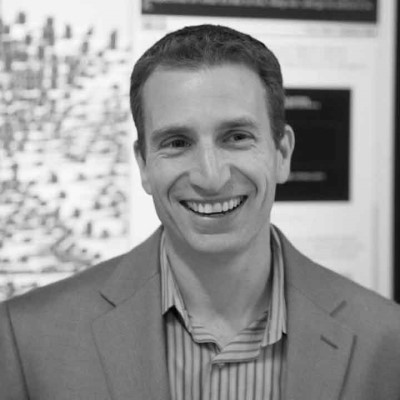
BIO
Dr. Presner is Michael and Irene Ross Professor and Chair in the Department of European Languages and Transcultural Studies at the University of California, Los Angeles. His research focuses on European intellectual and cultural history, Holocaust studies, visual culture, and digital humanities. Dr. Presner's most recent books include Probing the Ethics of Holocaust Culture (Harvard University Press, 2016), co-edited with Claudio Fogu and Wulf Kansteiner, and Urban Humanities: New Practices for Reimagining the City (MIT Press, 2020). He is currently completing his monograph entitled Ethics of the Algorithm: Computational Approaches to Holocaust History and Memory. Dr. Presner is the recipient of the "Digital Media and Learning" Prize from the MacArthur Foundation/HASTAC and many other research and institutional grants.
Using Computational Methods to Analyze Antisemitism in the Shoah Foundation Visual History Archive
Dr. Presner is using a range of computational methods in the field of natural language processing to study how hundreds of survivors remember antisemitism in the late 1930s and early 1940s. He is particularly interested in indexing, documenting, and analyzing agency -- expressions of what people say they did and what they say was done to them -- to understand vectors of action, especially coerced actions and possibilities for resistance and defiance. Dr. Presner and his team developed a unique text analysis methodology in which they extracted mentions of anti-Semitic activities in 1,280 English-language transcripts of the testimonies recorded by Shoah Foundation in the late 1990s and early 2000s, including the testimonies of survivors from Germany, the Netherlands, Poland, Czechoslovakia, Russia, Hungary, France, and other countries. The hundreds of survivor accounts that Dr. Presner and his team used for the project do point to the significance of anti-Semitic blame and scapegoating: blame for killing Christ, the persistence of the belief in Jews using Christian blood for religious ceremonies, and the narrative of undermining the nation. Dr. Presner contends that, while the hatred was manifested and experienced individually, “the Jews” – as a group -- were deployed into a dangerous narrative of blame, retribution, and salvation in Nazi Germany. When that narrative is taken up by the institutions of power (the government, the church), the hatred is mobilized for mass violence.